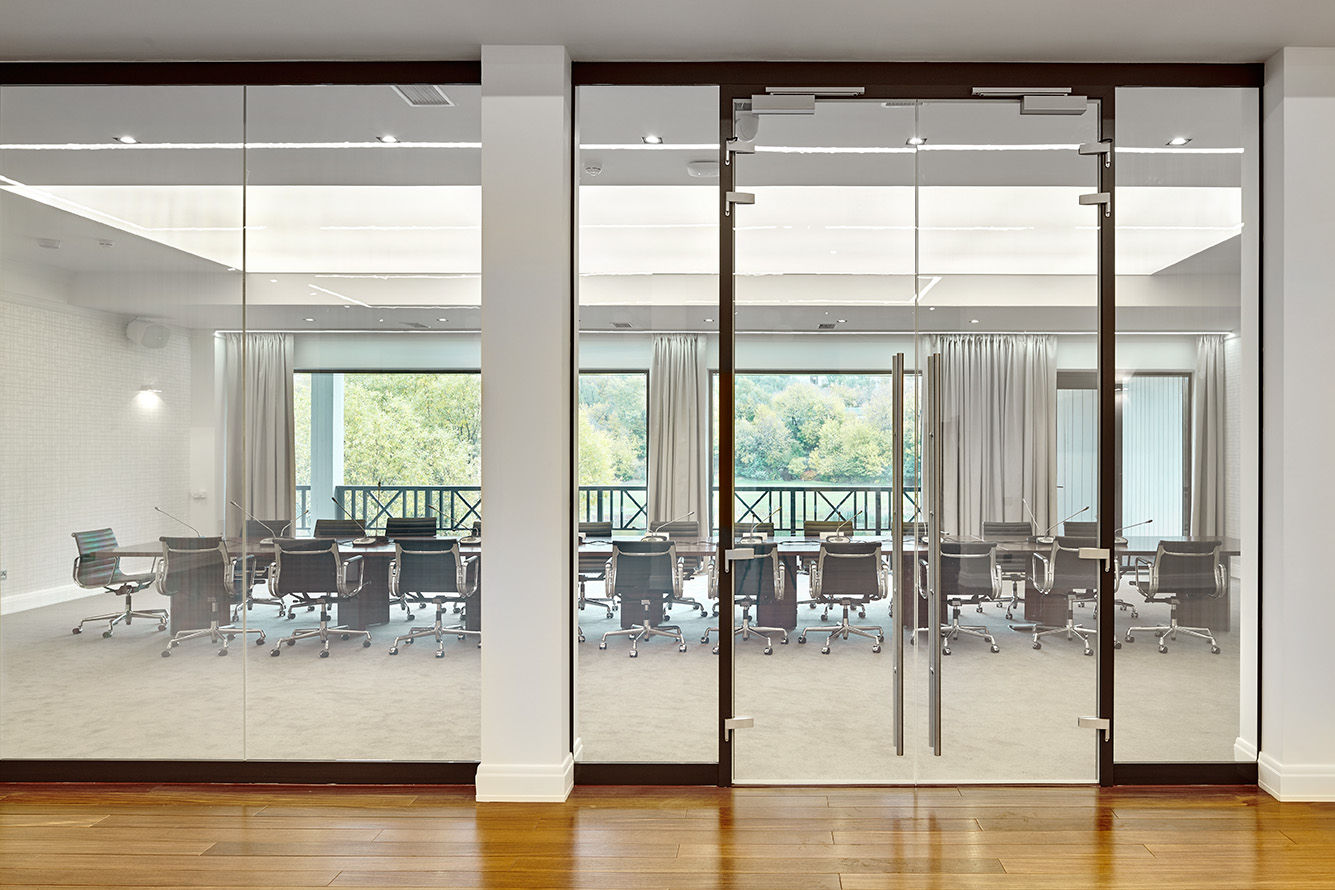NAYADA SmartGlass

«Smart glass» or variable transparency glass is an innovative breakthrough in the glass treatment technique. By changing its optical properties, glass can turn from transparent to matt and vice versa.
Modern companies prefer a policy of a «transparent business». This also applies to the design of office spaces where glass is used more and more extensively. When zoning premises with glass partitions or doors — be it a manager’s office or a meeting room — often there is an issue of maintaining the balance between openness and privacy.
It is possible to create an atmosphere of openness and freedom while preserving personal space with the help of the «smart glass» technology, which can be offered by the NAYADA Company to its customers.
The NAYADA Company produces full-size products using electrochromic films of variable transparency. The action of the film is based on the ability of a liquid crystal layer to change its transparency upon application of electrical voltage.
A remote control allows changing the interior of the premises easily. A private zone can be immediately created in an open office for work or negotiations requiring focus and concentration of the interlocutors. If it is disconnected from the power supply (the set includes a transformer), the liquid crystals are oriented randomly. In this case, the glass becomes matt, which prevents visibility in both directions.
«At the moment, this is one of the high-tech and promising trends in the glass industry. The demand for ‘smart’ glass is increasing, thereby contributing to increased production capacity of NAYADA in this area. We follow the latest industry trends and try to meet the needs of the most demanding customers,» says Vladimir Desyatov, manager of glass production at NAYADA.
NAYADA’s smart product allows reducing heat losses, the cost of air conditioning and lighting, and is an alternative to mechanical blinds and shading screens. The warranty period is 2 years, and the temperature conditions of product operation, range from −30 to +60 °C. In addition to its main function, the film protects premises from ultraviolet radiation.























